Frenkie de Jong’s blunt post-match remark — that Barcelona began strongly but were outplayed after halftime — has lit up the fanbase. Supporters point to a visible drop in control, with several citing a pivotal yellow card that altered the midfield’s bite and tempo. Others argue the team looked unlike last season’s version, lacking composure and structure under pressure. A handful went further, claiming Barça “deserved to lose” based on the second-half performance. De Jong’s honesty resonates, but it also underlines the need for sharper game management, smarter responses to bookings, and more control in transition against elite European opposition like PSG.
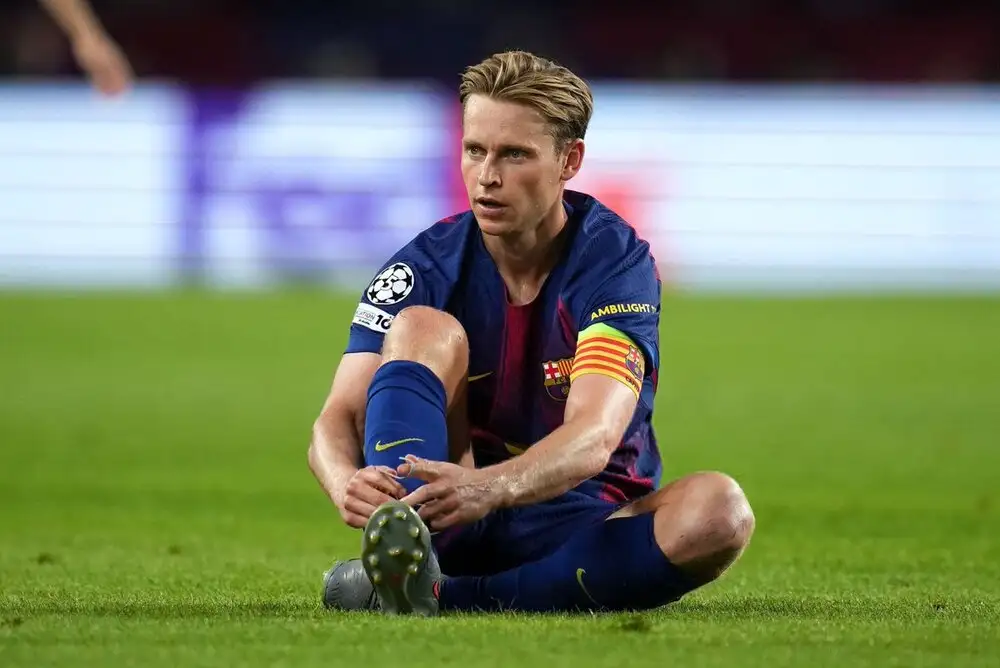
The comments were delivered in the immediate post-match window following Barcelona’s high-intensity European clash widely understood to be against Paris Saint-Germain. The tone reflects a performance split across two contrasting halves: early composure from Barcelona followed by a momentum swing after halftime, including a booking that influenced midfield control and pressing decisions.
Frenkie de Jong : "I think we started the match better, but they were much better in the second half"
@BarcaUniversal
Impact Analysis
De Jong’s admission succinctly captures a tactical story: Barcelona’s build-up initially established rhythm, but the second half flipped as PSG escalated their press and punished turnovers. The key inflection point many fans flagged — a yellow card to a central midfielder — matters because it dampens the player’s ability to step in, foul tactically, and protect the half-spaces. That, in turn, strains the first and second defensive lines, exposing center-backs to direct runs and forcing full-backs deeper.
In possession, Barcelona’s double-pivot spacing began to stretch, making vertical connections slower and predictable. PSG capitalized by overloading wide-to-inside channels, then switching quickly to isolate defenders. Without aggressive counter-pressing after losses, second balls increasingly fell to PSG, allowing repeat entries into the final third. This is where the match control ebbed: fewer progressive carries from midfield and a decline in field tilt after the interval.
Psychologically, conceding initiative after halftime can create a feedback loop — rushed decisions, late challenges, and disjointed pressing traps. Practically, it calls for in-game adjustments: refreshing legs in midfield, adding a stabilizer to shield the back line, or altering rest-defense positions to guard against transitions. De Jong’s remarks acknowledge the reality: the second-half intensity and tactical clarity favored PSG, and Barcelona’s responses were a step slow across key moments.
Reaction
Fan sentiment split into two broad currents: frustration with individual performances and broader concern about team identity. Many zeroed in on De Jong, arguing he was below par on the night and that a booking changed the midfield’s tenor. Some even questioned whether he featured after the break, using exaggeration to underscore how absent they felt the midfield presence became once PSG seized control.
Others broadened the critique: “This isn’t last year’s Barça” echoed through threads, pointing to a perceived loss of composure and compactness under pressure. The second half, they argued, was symptomatic of preventable issues — slow restarts, gaps between lines, and an inability to halt momentum with professional fouls or game management. A few insisted the performance merited defeat, citing the imbalance of chances and territory after halftime.
There were also tactical takes from supporters: claims that the yellow card neutered the aggression required to win duels, that the press triggers were mistimed, and that substitutions arrived too late to tilt the field back. Despite the heat, a minority appreciated De Jong’s accountability, asserting that frank assessments help align standards. Still, the dominant mood was clear: the second half hurt belief and demanded immediate fixes.
Social reactions
What made them match better than us?we need to sit up
Leslie Quansah💙❤️ (@LeslieBrussels)
Come to Atleti frenkie ♥️♥️
S໐fʏᴀ ✨ #Grizi200⚽️ (@sofya_Griezmann)
You saw they were better and u didn't do anything
PRIDE ROLLINNLAHA 💛🖤 (@PRIDE_017)
Prediction
Expect Barcelona to prioritize second-half resilience in upcoming European fixtures. That likely means pre-planned rotation in midfield to preserve intensity beyond the 60th minute, plus an extra stabilizer to maintain compactness when game states tilt. If bookings become a factor, staff will adjust with faster substitutions or a temporary shape shift — for example, briefly adopting a more conservative double pivot to protect zones while waiting out pressure waves.
On the ball, look for quicker outlet patterns to escape the first press and more deliberate rest-defense structures — holding a full-back and a midfielder deeper to stifle counters. Barcelona should also rehearse late-game scenarios that emphasize foul timing, touchline traps, and tempo control off throw-ins and restarts. In high-variance European nights, marginal gains in these areas swing outcomes.
Individually, De Jong will likely take on responsibility as a tempo-setter, demanding closer distances between lines and clearer triggers. Expect the team to target a controlled first 15 minutes after halftime in the next marquee match — even if it means sacrificing risk for stability — before reintroducing vertical plays once momentum is reestablished.
Latest today
- Manchester United eye Manu Koné for summer 2026 - a made-to-measure fit for Amorim's midfi...
- Ruben Amorim aligns with Jason Wilcox as Man United sharpen January transfer plan
- Ruben Amorim on 3-4-3: identity first - what it means for Manchester United and player rol...
- Amorim flags United injury crisis - Bruno, Mainoo, De Ligt, Maguire and Mount doubtful
Conclusion
De Jong’s candor doesn’t inflame; it clarifies. Barcelona’s best passage came early, but the match was defined by the post-interval shift where PSG owned the margins — duels, second balls, and transitions. That’s fixable, provided adjustments start with structure and continue with personnel timing. The key is to stabilize when momentum swings: protect the half-spaces, keep a safety net in rest-defense, and rotate earlier to preserve pressing quality.
Fans’ frustrations are understandable; standards at this level demand 90 minutes of control. Yet the performance doubles as a blueprint for corrections. With tighter distances between units, a clearer plan for yellow-card contingencies, and more deliberate tempo management, Barcelona can close the gap that opened after halftime. De Jong’s statement, then, reads less like an excuse and more like a challenge: recognize where the balance tilted, and turn that knowledge into a stronger, more resilient second half in the next European test.








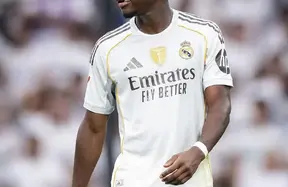
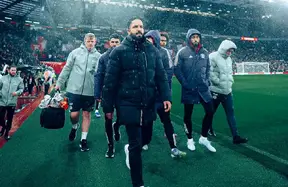
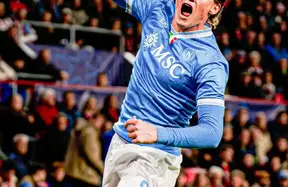
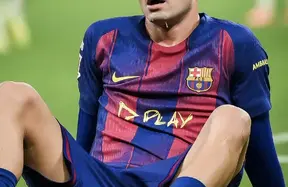
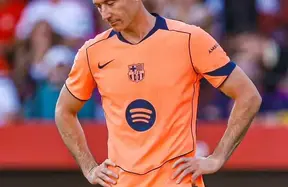
Leslie Quansah💙❤️
What made them match better than us?we need to sit up
Moon қnight
No shit Sherlock
S໐fʏᴀ ✨ #Grizi200⚽️
Come to Atleti frenkie ♥️♥️
PRIDE ROLLINNLAHA 💛🖤
You saw they were better and u didn't do anything
CulersSoul
Because you were so pathetic in the second half that I already felt PSG was going for the second goal
Skillie
Much better We didn’t play well at all
Dr. Prince charles
The whole match!
Tunny🔥
They were superior
Kuric Emmett
It’s really a bad game, this isn’t Barca for last year. We need to do better then this❤️💙all team didn’t play well
ViscaBarca💙❤️💙❤️
Frenkie was very bad tbh
messigoat1030
We deserve to lose because of the second half performance
BlauGranaPanda
The moment he got a yellow we lost control
Komron Esonov
Cause you didn’t even play in the second half
Mohan's Football
That's truth.
Maximus 🔶️ BNB
Wow
CX 🌐
Wow
Casper
Yeah
Sop🇩🇪
Cry more Varca dog